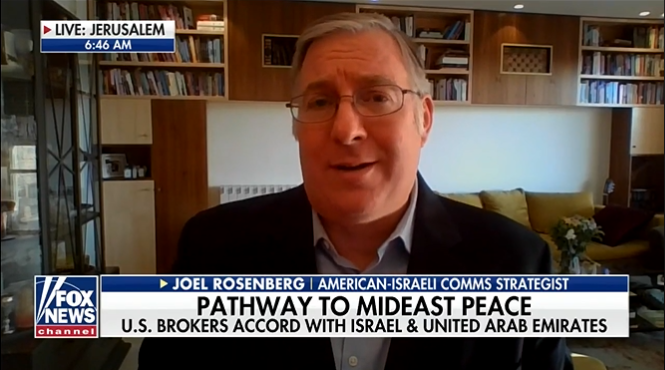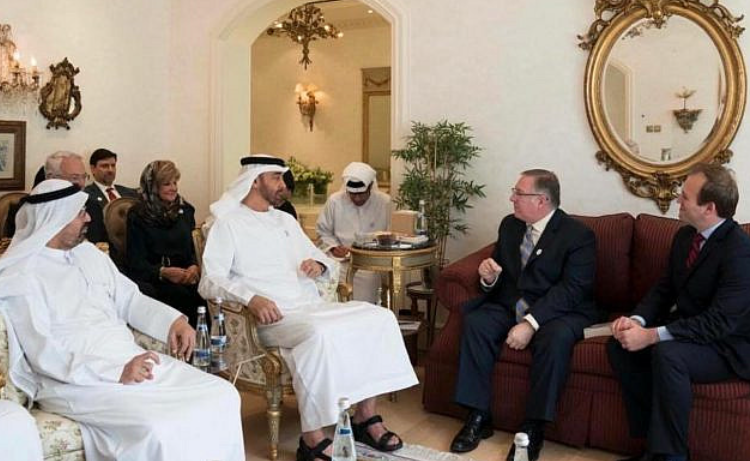
(Jerusalem, Israel) — Tragedy in Beirut. Triumph in the United Arab Emirates and Israel. All in one week.
Welcome to the modern Middle East.
Look away if you want, but forces in this region have a way of pulling you back in.
Over the past 24 hours, I’ve done a dozen interviews with U.S. and Israeli journalists, commenting on the significance of this new peace deal, including how the Crown Prince of the UAE told me and my Evangelical delegation in a private meeting in Abu Dhabi in October 2018 he was “ready to make peace.”
Here is some of those interviews.
Let’s start with the live interview I did last night (eastern U.S. time) with Fox News anchor Shannon Bream, telling her Israelis are “electrified” by news of the first new Arab-Israeli peace deal in a quarter of a century. Bream also interviewed two former State Department officials who provided bipartisan praise of the deal. David Tafuri served as a foreign policy advisor to President Barack Obama. Kiron Skinner served as a foreign policy advisor to President Donald Trump.
To watch the full interview, please click here.
The following are excerpts from my portion of the interview:

BREAM: Now, Joel, I know – because of conversations that we’ve had – that you have been in communications with a number of key people and people connected to this. Would you give us some context about what it could mean for the rest of the Middle East as this comes together?
ROSENBERG: Well, I think this is historic. It’s a game-changer. We haven’t had an Arab-Israeli peace deal in 26 years, almost, since the King of Jordan in 1994. This is huge. I’m talking to you from Jerusalem. This is a country that is electrified by this decision. And I will tell you that the UAE Crown Prince Mohammed bin Zayed invited me to bring a delegation of Evangelical Christians to meet with him a little more than 18 months ago. We sat in the palace in Abu Dhabi and he said directly – it was a two-hour, off-the-record conversation, but I can tell you now – he said, “I am ready to make peace.” We were stunned, and we talked through what the process would be like. And I said to him, “Look, I have no political power. I’m a novelist. I’m a political analyst. But I live in Jerusalem. I’m an Israeli-American citizen. I want to invite you to come to Jerusalem.” And he leaned forward and he said to me, “Joel, that day is coming sooner than you realize.” So this is just an extraordinary set of developments. And also kudos to Prime Minister Netanyahu, who has decided to set aside the issue of annexation to focus on regional peace. This is a huge, huge development.
………..
BREAM: Very quickly, Joel, I see you nodding your head about the Iran piece [of the story]. Can you give us a quick comment on that, what it means to them?

ROSENBERG: Absolutely. The Iran nuclear threat – and the Iran terrorism threat and subversion threat – has been the key ingredient that has fundamentally recalculated every Arab leader’s view in the region to ask, “Who is my friend, and who is my foe?” And I will tell you, there is a slight degree of credit that needs to go to President Obama here, almost inadvertently. Because by siding with the Iran nuclear deal, and not including the Sunni Arab states and Israel in those discussions – in fact, we were all blindsided by the fact that secret negotiations were going on – it really accelerated the UAE’s decision, “I need allies like Israel.”
If you’re interested, here are links to other stories I’m quoted in:
—————–
—————————



